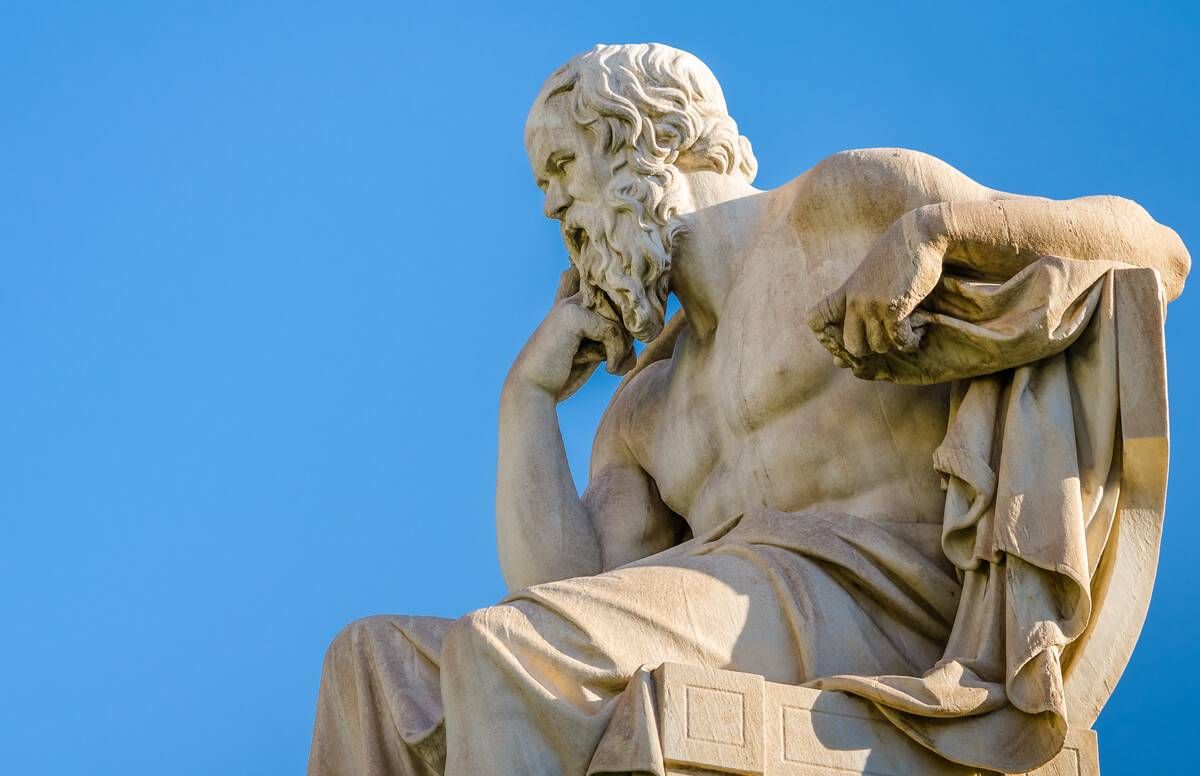Does Wisdom Come With Age?
A few words to the wise (and not so wise) about ways to gain wisdom
A recent paper for the Journals of Gerontology: Psychological Sciences began with the following sentence: “It is often assumed colloquially that wisdom comes with age and experience, yet empirically and anecdotally this is not necessarily the case.” The paper continues, “wisdom seems to be rare among any age group.”

Rare? As in, not common?
For that matter, what is wisdom? Everyone seems to know what it is on some level, but it can be difficult to articulate. Even Socrates didn’t quite nail it: “The only true wisdom is in knowing you know nothing.”
Really, Socrates?
According to the Buddha, wisdom only comes to those who can control their minds and achieve enlightenment. Sorry, that’s Enlightenment with a capital ‘E.’ Here, at least, is a hint as to what wisdom actually might be: good health, bringing happiness to your family and peace to all.
In the Bible, God grants Solomon wisdom, but Solomon then does something utterly foolish and turns away from God, which doesn’t work out so well for him.
Perhaps, then, wisdom is a fleeting thing? Or, at least, something that needs to be nurtured, like a garden.
The Practical Application of Knowledge
Science has approached the question of wisdom in different ways. In the field of information science (associated with collecting and storing information), wisdom resides at the top of a pyramid. The base of the pyramid is data.
Look at your bank account statement. The entries, the credits and debits to your account, those are data. By themselves, they are meaningless. Put into context, however, and data becomes information. By itself, without context, data is useless. Information is useful. $212.76 spent at the supermarket on groceries? That’s information.
Next comes knowledge. Knowledge is information that has been internalized by a person. Knowledge is knowing that the $212.76 in groceries will provide energy and nutrition for you and your spouse for a week, but only if you make a big pot of chili with red beans, and eat oatmeal for breakfast every day except for Sunday, which is pancake day. Your knowledge includes knowing this is totally doable since you both love oatmeal, and you can extend the chili by boiling some pasta for chili mac later in the week, which you also both love.
Wisdom is the use of knowledge for good … for good health, for financial well-being, for the good of humanity. For example, you could have taken that $212.76 and blown $50 on beer and whisky, which you know both you and your spouse enjoy, but that would have caused your grocery haul to fall short for the week. It would also have countered your efforts to lose weight — not just from the alcohol itself, but from the snacking and TV watching that accompanies it. So, not buying the beer and whisky would be an exercise in wisdom, at least to some people. Maybe not everyone, though.
How is Wisdom Defined?
Merriam-Webster has three definitions for wisdom:
Insight — which is basically an understanding of people and their relationships, and presumably being able to navigate relationships successfully
Knowledge — simply one’s accumulated information learned through experience, schooling, reading, etc.
Judgment — which is nothing more, or less, than having good sense
In their 2015 book, The Wisest One in the Room , social psychologists Thomas Gilovich and Lee Ross make a case that having wisdom means “being smart about people.” They call it being “psych-wise,” which means understanding behavior, your own and that of others, and having perspective. Their book is intended to help people understand what wisdom is and how to achieve wisdom themselves.
Is it possible to learn wisdom, to become wise even if you don’t think you are wise now? (Even though the desire to become wise could be considered rather wise itself.)
An Intuitive Understanding
Monika Ardelt, a professor of sociology at the University of Florida who studies wisdom, believes most people actually have a good intuitive understanding of wisdom.
“They see it as a combination of cognitive, reflective, and pro-social attributes,” Ardelt said, “although some people view wisdom as a more cognitive concept and define it in terms of deeper and broader knowledge. However, wisdom-related knowledge by itself does not make a wise person. A wise person also behaves wisely, which is more difficult than giving wise advice to others, due to our self-centered tendencies.”
Ardelt developed a model of wisdom which she calls three-dimensional: “An integration of cognitive, reflective and compassionate dimensions.”
The cognitive dimension refers to insight and knowledge about living well; how to understand, deal and interact with other people and “How should I best live my life to be happy and content?”
The reflective dimension is the ability to look at events and oneself from different perspectives and to overcome the tendency to blame other people or circumstances for one’s own situation. Different perspectives increase insight into the nature of reality, and other people’s (and one’s own) motivations and behavior.
Finally, the compassionate dimension of wisdom comprises sympathy and compassion for others.
It's apparent that wisdom is a quality that's been highly regarded for thousands of years. It is also apparent that exactly what wisdom is can be difficult to pin down. However, the ideas presented here will, hopefully, make us all a little wiser about wisdom.

